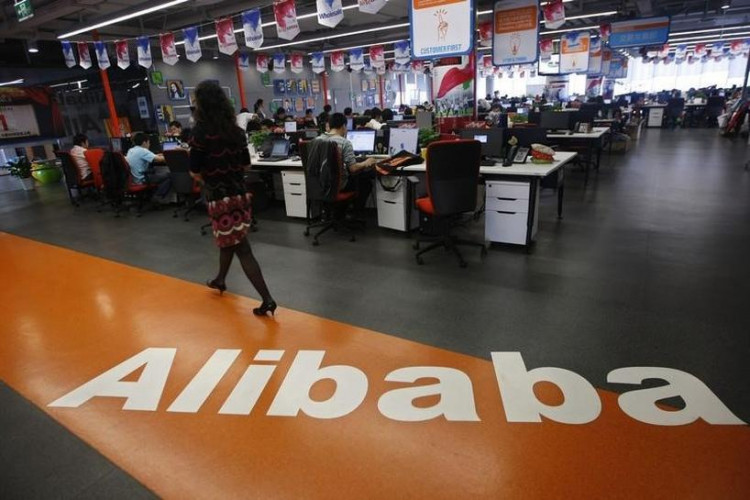The shares of Chinese e-commerce powerhouses Alibaba, JD.com, and Pinduoduo surged on Tuesday after the People's Bank of China (PBOC) announced a sweeping stimulus package aimed at reviving the country's struggling economy. This marks the most aggressive intervention by China's central bank since the pandemic, designed to counter sluggish economic growth and reinvigorate key sectors, including real estate and technology.
Following the PBOC's announcement, Alibaba's stock climbed 7%, while JD.com and Pinduoduo saw even larger gains, rising 11% and 10%, respectively. These gains reflected investor optimism that the stimulus measures could provide a much-needed boost to China's online retail giants, which have faced a turbulent few years amid regulatory crackdowns and economic slowdown.
The PBOC's stimulus package includes significant monetary easing measures. These include cutting key interest rates and lowering reserve requirements for banks, effectively injecting over 1 trillion yuan (around $140 billion) into the economy. This move aims to encourage lending to both businesses and households, facilitating investment and spending in a market where weak demand has plagued growth.
This bold stimulus comes at a time when the Chinese economy, the second-largest in the world, faces numerous headwinds. A cooling property market, weakened consumer spending, and a significant regulatory clampdown on its tech sector have hindered the country's economic recovery following the pandemic. The measures, which have also lowered mortgage rates and reduced minimum down payments for homebuyers, are designed to ease financial burdens on debt-laden property owners and stimulate consumer confidence.
China's stock markets responded positively to the PBOC's announcement. The Shanghai Composite, CSI 300, and Hang Seng Index all jumped more than 4%, driven by the central bank's aggressive move to boost liquidity. Tech companies, including NetEase, Baidu, and Tencent, also saw notable gains as investors anticipated a ripple effect of the economic stimulus across sectors.
For Chinese e-commerce companies like Alibaba, JD.com, and Pinduoduo, the stimulus comes at a critical time. These firms, which have long been considered the engines of China's rapidly growing digital economy, have struggled under the weight of regulatory pressures and a slowing domestic economy. Alibaba, for instance, has yet to recover from its late 2020 peak when its shares traded above $300. While the company's stock is up 23% this year, it remains far from its pre-crackdown highs.
The regulatory crackdown, which began in 2020, targeted antitrust violations and monopolistic behavior in China's tech sector, resulting in over $1 trillion in lost market value across major Chinese firms. Alibaba was hit particularly hard, facing a $2.6 billion fine and being forced to restructure in response to the government's strict new regulations.
Despite the recent uptick in share prices, many analysts remain cautious about the long-term impact of China's stimulus measures. While the injection of liquidity is expected to provide short-term relief, some question whether it will be enough to sustain a broader economic recovery.
"This is a positive step, but it's unclear how long-lasting the impact on stocks will be," said Jeffrey Kleintop, chief global investment strategist at Charles Schwab, in an interview with Yahoo Finance. "A lower mortgage rate might help some households, but it doesn't address the more significant structural issues like falling property prices and weak consumer demand."
Stephanie Roth, chief economist at Wolfe Research, echoed this sentiment. "We've heard before that China is easing, and there's excitement about the global economy's potential boost, but it often doesn't play out as expected," she said.
Indeed, while the PBOC's latest measures are the most aggressive since the pandemic, some economists argue that additional fiscal stimulus will be necessary to achieve the government's ambitious growth target of 5% for 2024. Major financial institutions, including Goldman Sachs, UBS, and Nomura, have already lowered their forecasts for China's economic growth this year, citing ongoing challenges in the property market and lackluster domestic consumption.
In response to these concerns, Pan Gongsheng, governor of the PBOC, has indicated that further monetary easing is on the table for later this year, although he stopped short of providing specific details or timelines. He also hinted at additional measures to ease borrowing restrictions for stock investments, another potential boost for China's markets.






